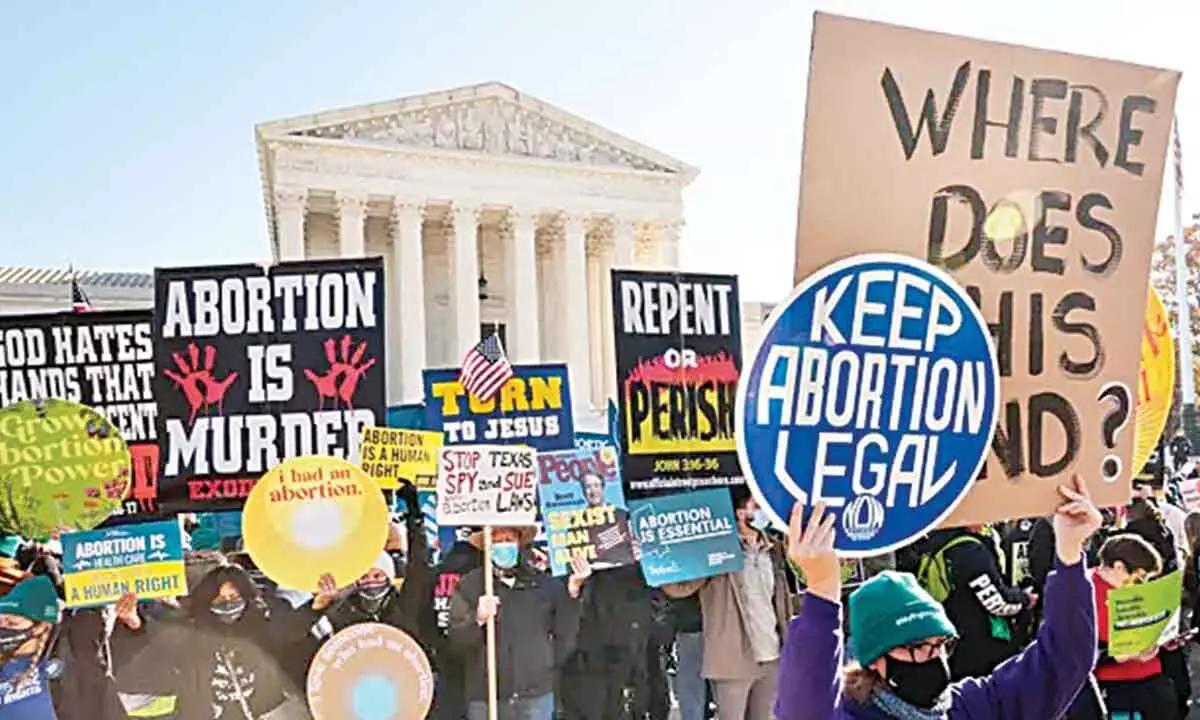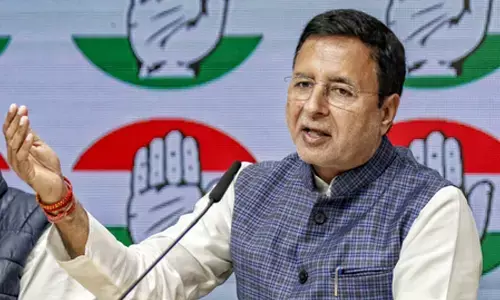An attack on religious freedom

Ever since the 1973 Roe v. Wade precedent, conservative Christians have used religious freedom to argue that they — as individuals, churches, or the businesses and organisations they operate — must not be required to participate in or pay for any health services that might include abortion.
This stance puts the rights of conservative Christians above the rights and freedoms of anyone whose religious beliefs permit abortion, and whose access might be affected by these refusals
Colorado (360info): If religious freedom is a true American right, then it must apply to all, not just the conservative Christians arguing against the right to abortion.
When the United States Supreme Court overturned Roe v. Wade, removing the right for all citizens to an abortion, Twitter exploded. Among the many declaiming against the decision were numerous tweets from Jewish Amercians announcing that, in stripping away the constitutional right to an abortion, the Court also stripped away religious freedom for American Jews.
A press release from the Unitarian Universalist Association likewise asserted: "Access to abortion and the right to choose is an issue of gender equality, bodily autonomy, and religious liberty, all of which are long held Unitarian Universalist religious teachings." "We would encourage the Orthodox people and organisations that are cheering the overturning of Roe v. Wade to reckon with the loss of religious freedom for Orthodox Jews, when rabbis permit or require abortion and the secular state will not allow it." — Chochmat Nashim (@ChochmatNashim) June 29, 2022.
These statements turn the tables on religious freedom debates from recent years, in which religious freedom has been cast as a right that mostly involves conservative Christians. The statements instead hark back to religious freedom arguments from the twentieth century. Broadly accessible legal abortion, the argument went, allowed pregnant women to make their own decisions about abortion, in the context of their own religious beliefs (or lack thereof), and potentially in consultation with their clergy. (Pregnancy and abortion rights, then and now, can affect trans men as well as women. But the conversation at the time was entirely about women.)
Ever since the 1973 Roe v. Wade precedent, conservative Christians have used religious freedom to argue that they — as individuals, churches, or the businesses and organisations they operate — must not be required to participate in or pay for any health services that might include abortion. This stance puts the rights of conservative Christians above the rights and freedoms of anyone whose religious beliefs permit abortion, and whose access might be affected by these refusals. Republicans, animated by conservative Christian ideas, have already enacted bans on abortion in states like Oklahoma, Texas, and Missouri. They have made no secret of their desire to push for more such bans, which are pending in many other states. They will also be proposed at the federal level. These advocates seek to impose a very particular Christian view onto the entire country. Religious freedom then becomes a valuable tool to reinstate reproductive freedom in states where abortion is outlawed.
For much of US history, abortion was fairly common in the early stages of pregnancy. A broad cultural consensus held that life began at the "quickening", when a woman began to feel fetal movement sometime in the fourth month of pregnancy. Newspapers advertised a variety of methods — indirectly and delicately phrased — to prevent or end unwanted pregnancies. These practices were relatively uncontroversial, not matters of ethical or religious concern. And despite the formal position of the Catholic Church, many Catholics too support abortion rights, sometimes for reasons that they connect to their Catholic faith — specifically, their Catholic commitments to social justice and the right of conscience. Christian traditions, then, do not speak with one voice on the subject of abortion.
The United States, of course, is not a Christian nation but a religiously pluralistic one. And non-Christian traditions have even more diverse responses to abortion. Broadly speaking, Islam permits abortion until about 120 days, and to save the mother's life it is permitted always. Judaism goes so far as to mandate abortion to save a mother's life. Liberal forms of Judaism support abortion rights as a feminist issue. More traditional forms of Judaism permit abortion to protect maternal health, and debate which health threats render abortion permissible, with some allowing for threats to mental health.
Buddhism has a similarly broad range of responses to abortion, and since the Supreme Court decision, Buddhist leaders have publicly declared their support for abortion rights, with comments like this one, from Shin Buddhist minister Blayne Higa, who wrote, "I will continue to support the spiritual and bodily autonomy of women and others to make informed decisions about their own reproductive health. I believe complex and difficult decisions should be held with compassion and empathy free from prejudice and interference."
The conservative Christian claim that life begins at conception is theological, rather than biological. For many other people of faith, access to abortion is itself a religious value. Meanwhile, a growing number of Americans do not identify with any religion at all. If religious freedom is a fundamental principle of the United States, as conservative Christians claim, it holds opens the door for others to argue that the right must be available to all people, not just to some, and not just to those in power. It remains to be seen whether the position held by one strand of Christianity — the belief that abortion is murder — will be the final word for all Americans.
(Article written by Samira K Mehta, University of Colorado Boulder, & Tisa Wenger, Yale University in Boulder)











